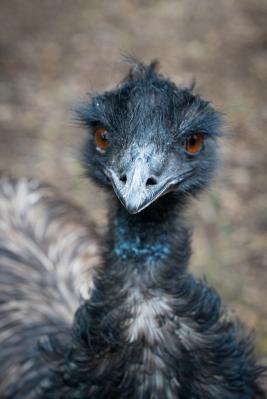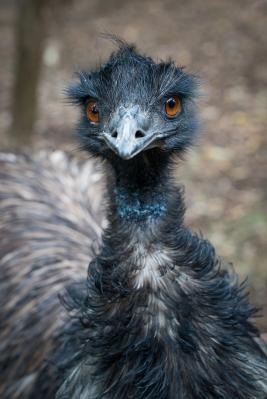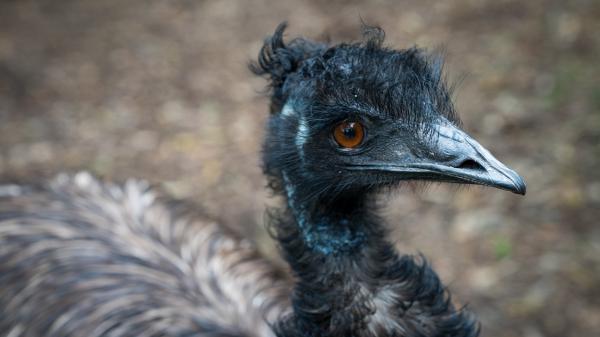Most Australians can recognise the iconic feather-fringed shape of an emu’s back. However, most Aussies would never dream of having to reach under the mass of emu feathers to assess its health.
“It’s actually really hard to tell exactly what’s happening under an emu’s feathers,” explains Healesville Sanctuary keeper Bianca Stewart.
“Emus are such big birds, they can easily gain or lose some weight without it being apparent. You can’t really tell what condition they’re in just by looking.”
That’s why Healesville Sanctuary keepers have trained resident emus Blinky, Drum and Endive to participate in health checks.
Keepers use the emus’ favourite foods to reward them for participating. Blinky and Endive both love apple chips, while Drum adores endive (the vegetable, not her fellow Sanctuary emu).
The emus will now stand at their exhibit fence to allow the keepers to conduct previously impossible health inspections. They are free to walk away at any time, but keepers say the emus participate with enthusiasm.
“Drum is especially eager to get her endives,” said Ms Stewart. “In fact, if she doesn’t think she’s getting the reward soon enough she’ll try and grab it herself.”
Keepers began by just hovering a hand over the emu’s back, eventually moving to feeling under the feathers to check condition. By gradually building up to full contact, keepers are able to feel fat deposits on the emus’ backs and hips to assess health, as well as any potential injuries.
Emus’ weight is particularly significant at this time of year, as they have built up fat reserves over the winter breeding season. Although the Sanctuary does not have an emu breeding program, the emus continue their annual natural cycle that sees them gain and then reduce weight. Males can reach weights up to 45kg.
While Healesville Sanctuary is temporarily closed to members and visitors, animal lovers at home can stay
connected with the Zoo’s animals through the Zoos Victoria live stream cameras at
www.zoo.org.au/animals-at-home









